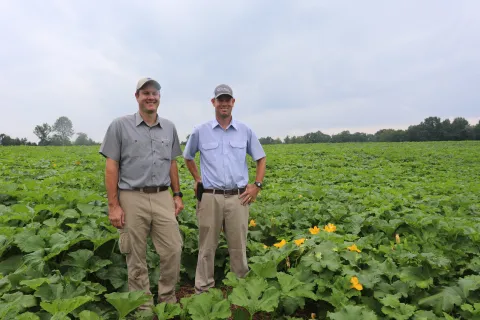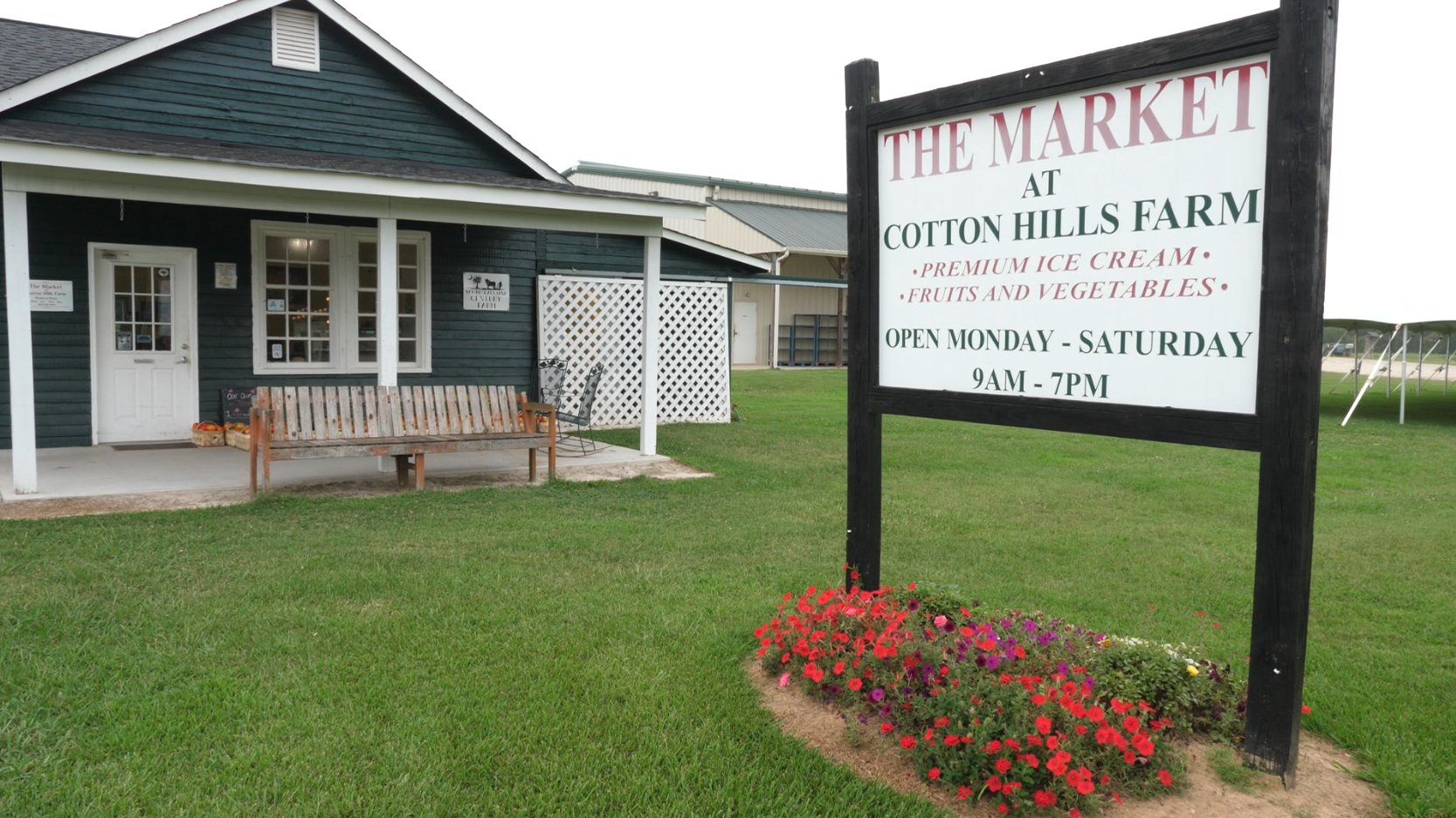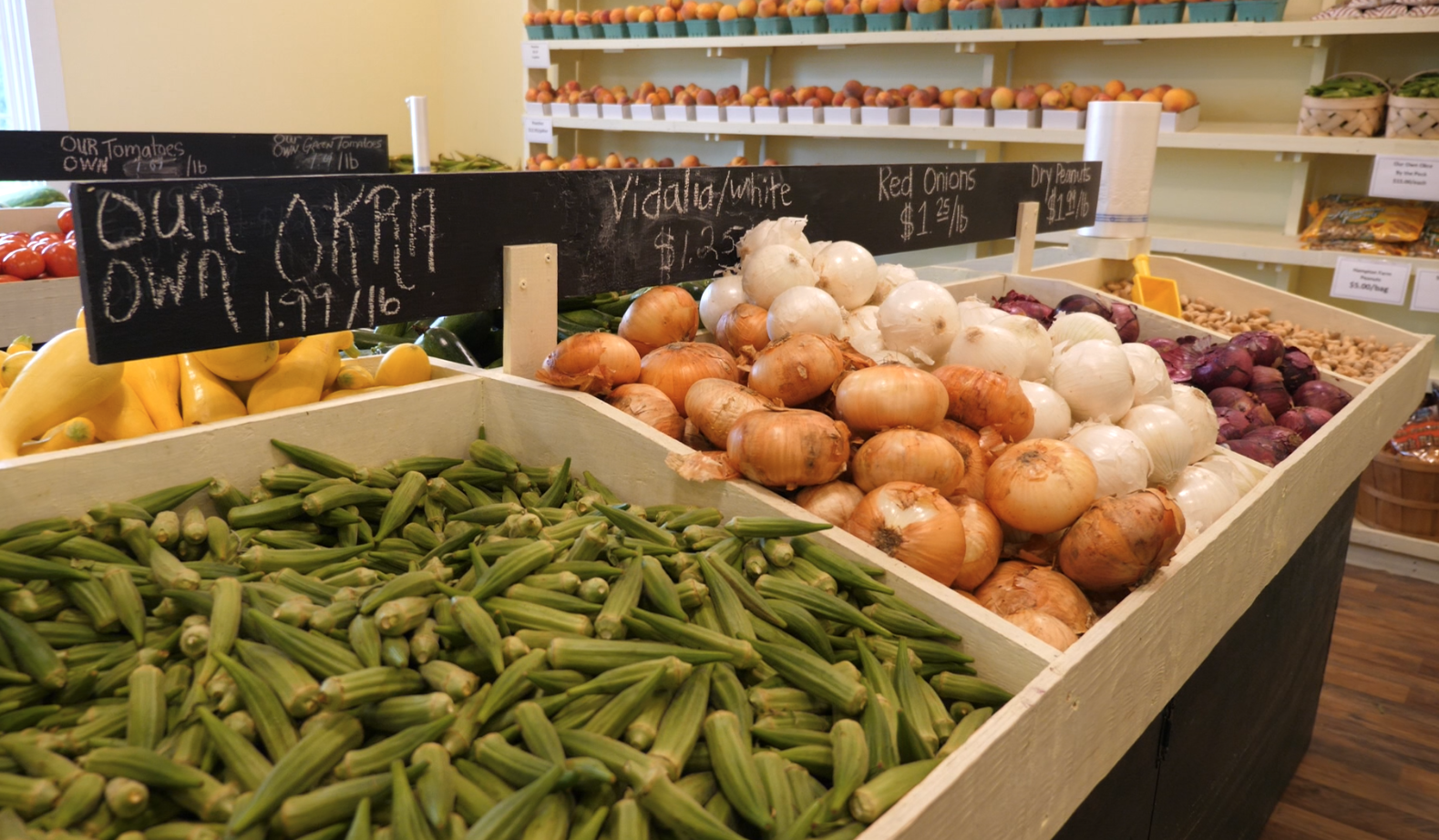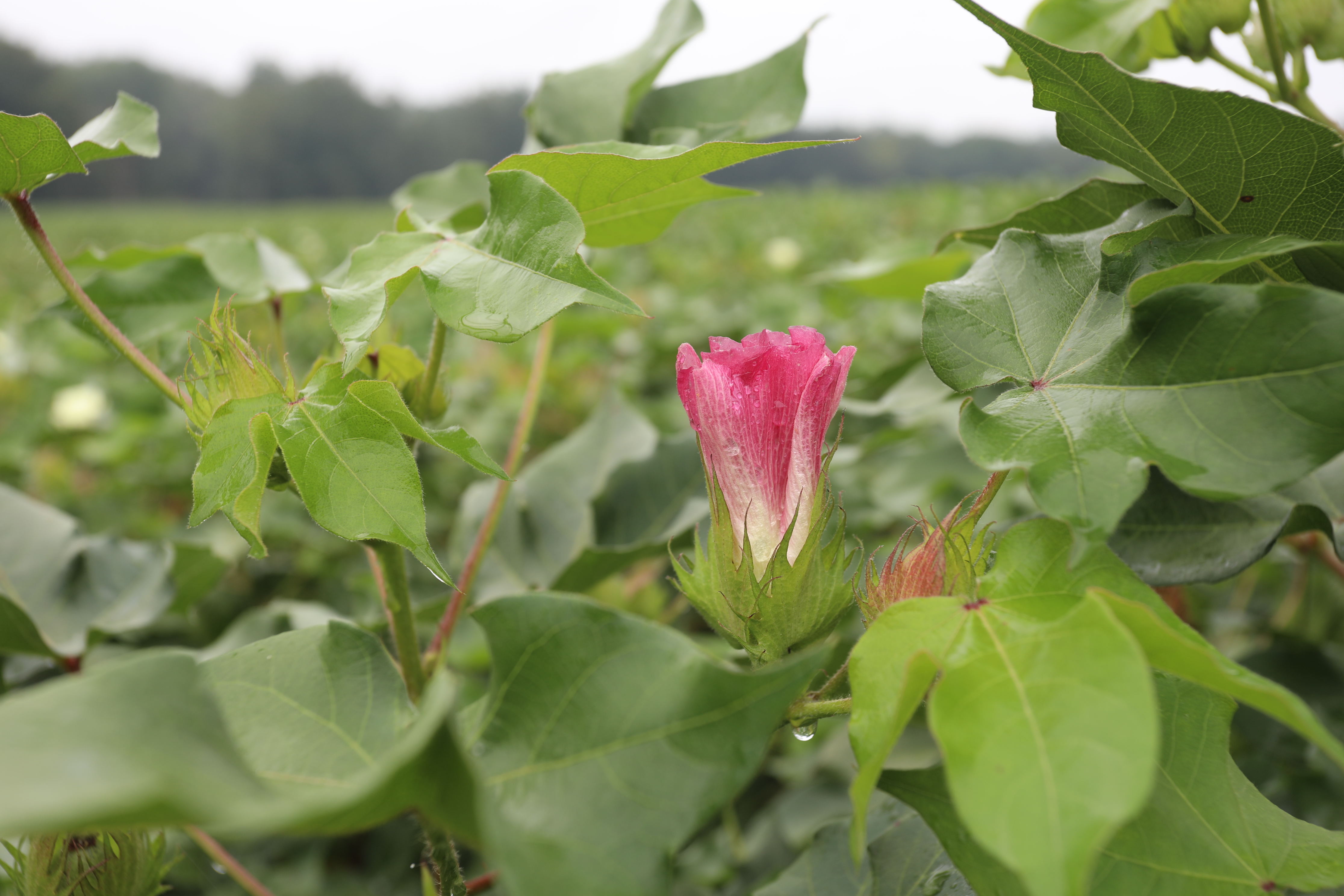
In 1880, Theodosia Abel and Joseph Wilson were to be wed. Her father gave them what is now known as Cotton Hills Farm for their wedding gift. Situated about an hour south of Charlotte in Lowrys, Cotton Hills has grown over the generations and now JEB Wilson along with his brother Pete and dad Jeff run the farm.
“Cotton has been planted on the farm for over 100 straight years. My granddad started planting peaches in the 1940s,” JEB detailed.

JEB returned to the farm after college in 2005 and since then he and his brother have expanded the produce offerings. “We grow watermelon, cantaloupe, strawberries, peaches, tomatoes, pumpkins, okra… Basically anything that can be grown in SC, we grow it.” Additionally they operate three retail locations and sell wholesale produce.
Conservation has long been a top priority for the Wilsons. The father and sons are always looking for ways to improve the farm and keep it sustainable for years to come. Jeff is a long serving member of the Soil and Water Conservation District in Chester County, and both JEB and Pete have been named Conservationist of the Year. JEB attributes their conservation achievements to their willingness to try new farming methods that will continue to decrease their environmental impact.
The namesake crop of their farm, cotton, requires a significant amount of inputs, but the Wilsons use conservation methods to ensure the crop continues to be sustainable without depleting precious resources. “Up until the 1980s, fields to be planted in cotton had to be cultivated, or plowed,” JEB explained. “Plowing disturbs the top soil and can often lead to erosion – especially in hilly areas.
“Now, during the winter, we plant rye. In the spring, we cut the rye green then no-till the cotton directly into the rye stubble. The rye does a really good job of keeping the soil intact and protecting the land from erosion.”
The rye has a dual-purpose, too. Once it’s cut, the Wilsons bale the straw and sell it to developers in the Charlotte area. The straw is spread out over new construction sites to prevent runoff until grass is planted. “Not only are we helping prevent erosion on our farm,” said JEB, “we’re helping to prevent it with some of this new construction as well.”

Critics of modern agriculture argue that environmental impacts could be reduced if farmers transitioned from raising cattle to more produce and grains, but JEB says farmers do a good job of choosing what their land is best suited for. “We hear about groups encouraging farmers to stop raising livestock for meat and converting more to produce and grains – there’s plenty of space to raise cattle. I would never encourage anyone to choose one over the other. We’re really blessed in America to have an abundant food supply.” Conservation and sustainability is a cornerstone of Cotton Hills Farm. “Our farm has been here for over 140 years now – I consider that to be very sustainable,” JEB noted. “In the ‘40s, my grandfather met with Clemson to discuss ways to prevent erosion. Clemson drew in all these places where they should plant kudzu… Thankfully they didn’t follow that plan – we all know now what a disaster kudzu is, but we’ve always tried to be progressive in our methods and ideas for ways we can preserve our land for future generations.”
The Wilson family continues to be devoted to their farm and are looking forward to passing it on. “I have two sons and I would love for them to be able to work on the farm if they choose and continue to serve our community well with good fresh fruits and vegetables,” said JEB.
